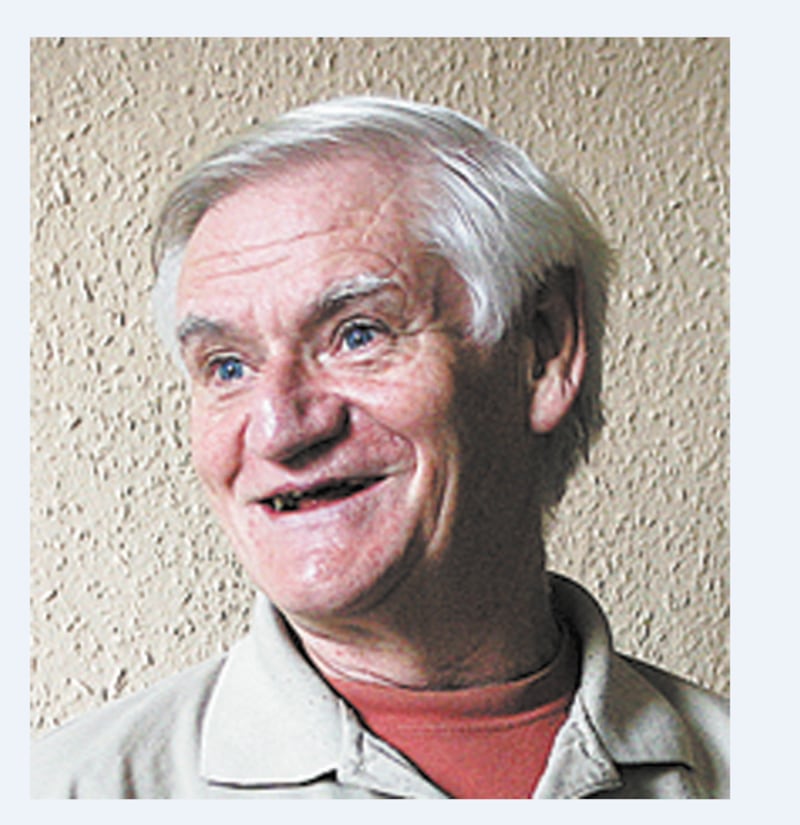Rose Dugdale, the English heiress and Provisional IRA member, has died, just days before the general release of a new drama film that focuses on part part of her controversial and remarkable life.
The 83-year-old died in a Dublin nursing home on Monday, according to multiple social media posts, including by members of Sinn Féin
Martina Anderson, the former Sinn Féin Foyle MLA, wrote: “Rose taught me a lot and I will never forget her. Proud to call Rose a comrade and friend.”
RIP Rose Dugdale 💔
— Martina Anderson Sinn Féin💚 (@M_AndersonSF) March 18, 2024
Rose taught me a lot and I will never forget her
Proud to call Rose a comrade and friend #heartbroken pic.twitter.com/wqYiJkPdkx
A new film, Baltimore, which focuses on the multi-million pound Russborough House art heist and its aftermath is released across Ireland and the UK on Friday. The makers of the film, starring Imogen Poots, sent a copy of the film to Dugdale and associates on Friday.
Dugdale, born in Devon in March, 1941, had a hugely privileged upbringing with the family dividing their time between a 600-acre country estate and a townhouse in Chelsea in the centre of London.
In 1958, she was among the last cohort of debutantes to be presented to Queen Elizabeth before attending Oxford University, later achieving a masters in philosophy and a PhD in economics at the University of London.
She became politically active at university but was drawn to more radical positions following a visit to Cuba and during the tumultuous global events of 1968.
Dugdale reportedly was drawn to the Irish Republican cause following Bloody Sunday in January, 1972, and after meeting with known IRA members, including Eddie Gallagher, with whom she had a child, Ruari.
Within weeks of moving to Ireland in late 1973, she took part in her first operation, the spectacular and unsuccessful attempt to bomb Strabane RUC station.
She and Gallagher hijacked a helicopter with the plan to drop four milk churns packed with explosives on the barracks. Two had to be ditched as they were too heavy, one landed far from the facility while the fourth was dropped close but did not explode.
In April 1974, Dugdale took part in the Russborough raid, with the gang netting 19 paintings worth £8 million, £100m in today’s money. Baltimore, the film, focusses on the days after during a nationwide hunt for the gang before their capture at a cottage in west Cork.

The paintings were recovered and she was sentenced to nine years. She gave birth while in prison.
Christine Molloy, co-director with Joe Lawlor, said they deliberately did not try and make contact with Dugdale during the production but wanted to do so ahead of its general release. A copy of the film was sent to Dugdale on Friday.
“We never felt that we needed to meet up with her in person and speak with her directly,” Ms Molly told The Irish News. “We think it would have felt presumptuous to be honest. If we were doing a biopic or a journalistic book…that would be a different matter.”
Sean O’Driscoll, the author of Heiress, Rebel, Vigilante, Bomber, pieces together Dugdale’s post-prison live developing bombs and explosive material with her partner Jim Monaghan. These were used in a number of fatal attacks.

Mr O’Driscoll, who interviewed Dugdale for his book, concluded: “Rose Dugdale did not kill anyone directly, but she was indirectly responsible for the deaths of a lot of people.”
Sinn Fein Dublin City Councillor Daithi Doolan wrote on social media: “Sad news. Rose Dugdale passed away this morning. She was a true revolutionary who inspired others. She dedicated her life to Irish freedom. Our thoughts are with her friends & family. I hope the memories give you some comfort at this sad time.”
Fiachra McGuinness, son of the late deputy First Minister Martin McGuinness, added: “Very sad to hear the passing of Republican legend Rose Dugdale.”
Based on the life of Rose Dugdale, a former debutante who rebelled against her wealthy upbringing, becoming a volunteer in the militant Irish republican organisation, the Provisional Irish Republican Army.
— Light House Cinema (@LightHouseD7) March 15, 2024
BALTIMORE screens from March 22.
🎟 https://t.co/ae7AFzDFaA pic.twitter.com/as6W8jVcqm








